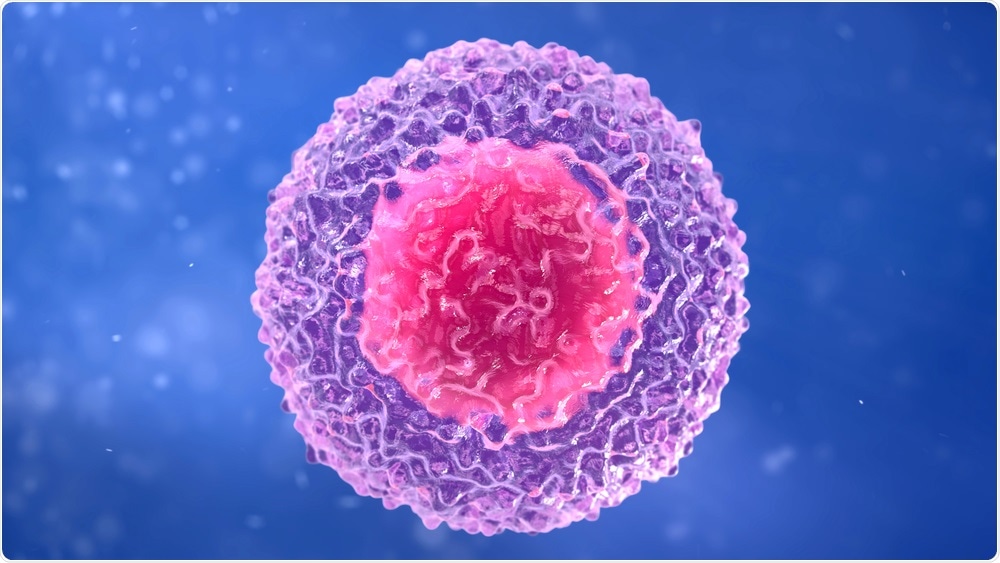T cells are known to be natural fighters that combat cancer cells in the human body. The T cell receptor (TCR) is a key receptor that is responsible for detecting tumor antigens in T cells.

Image Credit: urfin/Shutterstock.com
But not all TCRs can detect tumor antigens.
Through genetic engineering, T cells are integrated with chimeric antigen receptor, or CAR, to particularly detect the tumor antigen and destroy the tumor cells found in the human body.
With regard to treating B cell malignancy, CAR-T cell therapy has accomplished unparalleled success. But CAR-T cell therapy is presently facing significant clinical challenges, such as poor persistence and cytokine release syndrome.
A team of researchers, headed by Professor XU Chenqi from the Center for Excellence in Molecular Cell Science, Shanghai Institute of Biochemistry and Cell Biology of the Chinese Academy of Sciences, Professor HUANG Chaolan from Peking University Health Science Center, and Professor HUI Enfu from the University of California, San Diego, has created a novel method of CAR-T cell therapy on the basis of new interpretation of TCR signal transduction.
The study was published online in the Cell journal on July 29th, 2020.
The team has been analyzing cell biology for over 10 years. The previous works of the scientists revealed novel regulatory mechanisms of PD-1 and TCR, and resulted in the development of new methods of cancer immunotherapy.
In this research, the scientists used mass spectrometric, immunological, biophysical, and biochemical methods and unraveled new signaling roles of CD3e—a major signaling subunit of TCR.
The researchers discovered that CD3e can potentially recruit Csk—an inhibitory signaling molecule—through its mono-phosphorylated ITAM motif and could even recruit the stimulatory molecule called PI3K through its BRS motif.
When CD3e was included into the 28Z CAR, which is used in clinical settings, E28Z CAR-T cells were found to have decreased cytokine production and improved cell persistence. The E28Z CAR-T cells in the preclinical animal models also demonstrated better anti-tumor function when compared to that of 28Z CAR-T cells.
The study is presently built on animal models. But the team will pursue its promising translational potentials in treating blood as well as solid malignancies.
Source:
Journal reference:
Wu, W., et al. (2020) Multiple Signaling Roles of CD3ε and its Application in CAR-T Cell Therapy. Cell. doi.org/10.1016/j.cell.2020.07.018.